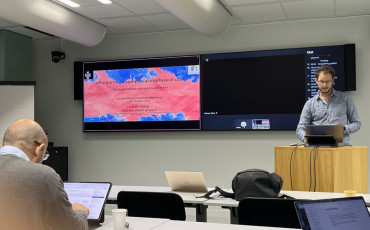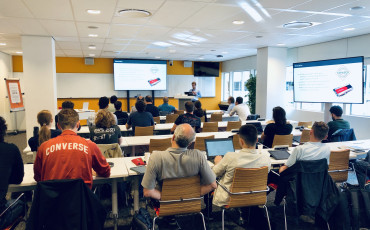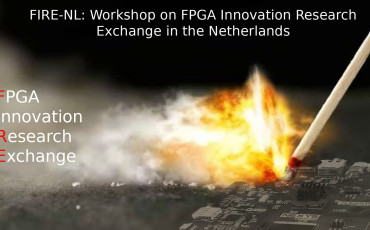Making scientific research on Dutch National Supercomputer energy efficient
Energy is an emerging topic in the scientific computing ecosystem and is becoming a design point for future research. Science relies increasingly on digital research computing as a tool for analysis and experimentation. The exponential increase in demand for computing means that classically designed ICT infrastructure will soon become unsustainable in terms of its energy footprint. We need to experiment with energy-efficient methods, tools, algorithms and hardware technologies. In the Netherlands, we are working towards zero energy waste for high-performance computing (HPC) applications on the national supercomputer “Snellius”. It involves discussing challenges, proposing new research directions, finding opportunities to engage the user community, and taking steps for the responsible use of software in research.
Traditionally, supercomputing focuses on improving latency or throughput, which are of massive importance for applications such as drug discovery or climate simulations. For many decades we developed infrastructure, algorithms, and software tools to obtain improvements. Given the rapid increase in energy usage for ICT services, further emphasised by the imminent energy crisis, it is a priority to understand and optimise the energy consumption of research computing applications
To know more, read the publication :
https://ercim-news.ercim.eu/en131/special/making-scientific-research-on…
Reacties
Dit artikel heeft 2 reacties
Meld je aan en praat mee
Als lid van SURF Communities kun je in gesprek gaan met andere leden. Deel jouw eigen ervaringen, vertel iets vanuit je vakgebied of stel vragen.
Reactie van Ruud Steltenpool
Energie meerdere keren gebruiken; bijvoorbeeld schoolgebouwen opwarmen met berekeningen.
Als er veel zon- en of wind beschikbaar is kan je er zelfs aan verdienen.
Door in sommige gevallen wat geduld te hebben kan daar ook qua scheduling op worden afgestemd?
Als antwoord op Energie meerdere keren… door Ruud Steltenpool
Reactie van Sagar Dolas
Yes, that's a good idea Ruud ! Indeed something we should try. It also depends a lot on location of the supercomputer.
Gerelateerde artikelen
-
 Future Computing and Networking
Future Computing and Networking -
 Future Computing and Networking
Future Computing and Networking -
 Future Computing and Networking
Future Computing and Networking
2 Praat mee